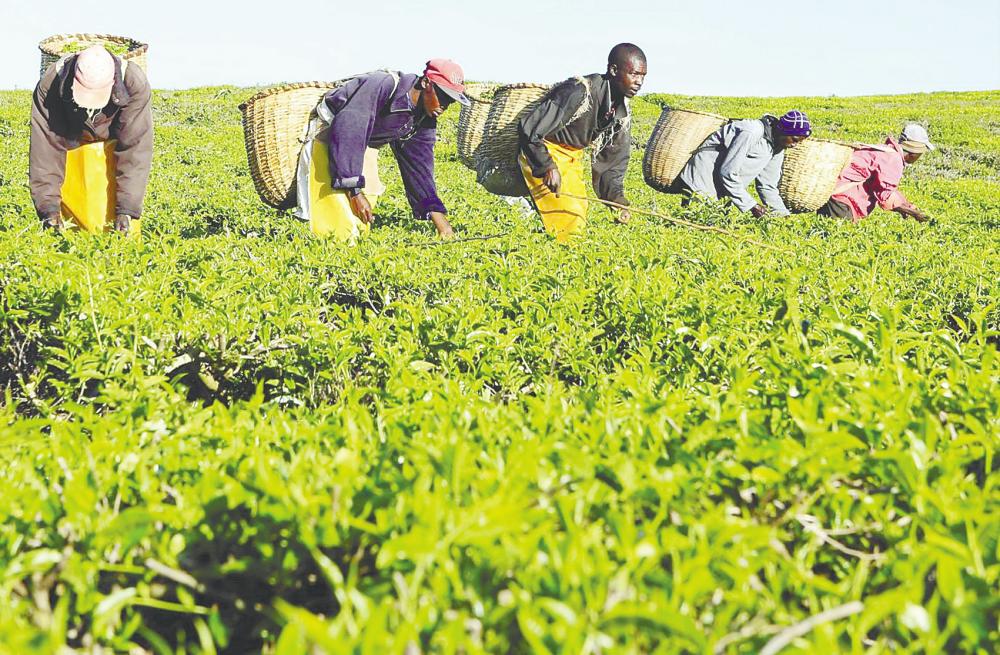I GOT to hear more about Colin Bewick from John Dodd when we were at Mweso. It was at the last part of my visit to the Democratic Republic of the Congo, at the end of 1984 and beginning of 1985, and I had put in the plan to visit the tea estate. But before Mweso, I had to visit two other areas – a rubber plantation and a cattle ranch.
The rubber plantation was at Gwaka, of old trees, with replanting done in straight rows as the way it was done in Tanah Merah Estate in Tangkak, Johor when I worked there for the manager Charles Cook in 1967.
Now Cook was here as the manager, having applied to Unilever after retirement. He was on leave, and his house was locked. I peered in and saw the rafter where his predecessor had hanged himself due to loneliness.
Cook and I did not meet, except for a fleeting moment when he came for a medical checkup at the head office. As in Tangkak, we had little to say to each other.
Dodd and Cook would have spent about the same years in planting, and may have different views. I left it to Dodd to handle him. He was good at that, and I had no plans to deal with Cook directly. I reflected that life could unfold in odd ways.
After the briefing by the manager Citoyen Tutala, and the visit to the replant area, I saw there was much that Dodd had to do, and leaving him behind, I boarded the plane to visit the cattle ranch in the north. The forests gave way to grassland, and eventually, we landed on the airstrip near the border of the Central African Republic.
It was a flat land of short grass to the horizon. I could see where the sky came down like a bowl. The 20,000 Ndama cattle had enough to eat, and their pests were mainly tsetse flies, and lions in some years past, marauders that had come from the north.
The manager and his team were of course delighted to have a visitor from head office. I saw some livestock pushed into a cattle dip to rid them of pests, and out again, and herded into the corral for their safety in the night.
At dinner that night, the wives had some concerns about the future. They, too, knew the river was getting dry and the cattle boat could not come up. It would mean a cattle drive may be needed to go as far as Gwaka to reach the Congo River. It had not been done before.
Flying ants dropped at the verandah, and lay dying after they lost their wings.
“It means rain is coming,” one of the wives said hopefully. “It may solve our problems.”
Here, I could give no new ideas, as I said goodbye the next day.
The next visit was to Mweso. It was to the east, about 5,000km from Kinshasa. I saw the volcanic mountain Nyiragongo as the Boeing airliner landed at Goma. It was not always a peaceful place and many years earlier in 1961, Malaysian troops had arrived under the flag of the United Nations.
Many of Congo’s troubles would start in Goma, and except for brief spells of peace, those troubles would never seem to end. Many of my friends who were army officers had confronted danger there early in their career.
At the hotel, as I looked out from my window at Lake Kivu, I stayed up to write a letter to my brother Corporal Alias, who had served there before.
On the small plane the next day, Dodd, Doreen and I looked down at little volcanoes spilling over with smoke and lava. When at last we saw the tea estate, the pilot circled and landed on the airstrip of small volcanic stones.
We stayed in a stone cottage that could be anywhere in England, with a hedge of roses, and the water from the tap was cold. It was running brown for a while for no guests had visited for some time. The place was remote and quiet. It was only 400ha, and even Dodd had not visited it before. He relied on the reports year after year, with the tea production reaching 2,600kg per hectare.
The workers were there on the slopes, bent over the green tea bushes, plucking and filling the baskets at their back. They were mainly Tutsis and Hutus from Rwanda and Burundi. They were at each other in their countries, but here as refugees, they worked together.
The next day, we went to the factory where gum trees were cut for firewood. I could smell the fragrance of eucalyptus oil in the morning air. Inside, I caught the aroma of the tea being prepared and graded. The crates of tea went by road to the Mombasa tea auction.
We had covered the area fast. At tea time at the resthouse, as the sun was slanting, Dodd walked to the hedge of roses with pruning shears and was clipping the branches. He came back to pour his tea and told me quietly.
“The yield figures that come in are too uniform for me to feel easy about. I am going to replace the manager every three years. We will see what happens.”
It was also at that time that he explained about Bewick. Dodd lost his relaxed air.
“He has been here for a few months now. He does not like to go to the field to see the work. He does not understand the business. He cannot just follow the textbook on personnel management. He does not see my point about many things.”
I could sense that there was no chemistry between them.
“What do you want to do?”
“I want to ask the London personnel department to take him away. I will need your support.”
The writer has extensive experience in the management of oil palm plantations. Comments: letters@thesundaily.com









